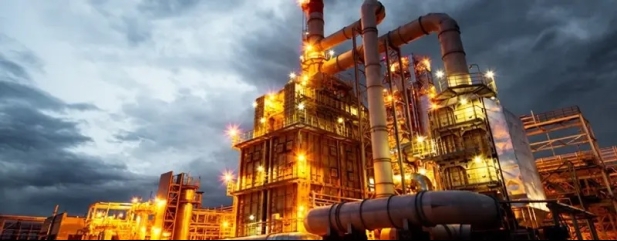Archived article
Please note that tax, investment, pension and ISA rules can change and the information and any views contained in this article may now be inaccurate.
Oil price hits six-month high amid sanctions and cold weather

Oil prices have hit a six-month high amid cold weather and new US sanctions on Russian sales of crude.
This is not entirely bad news for the FTSE 100 given the heavy weighting of oil giants BP (BP.) and Shell (SHEL) in the index, but not for nothing is oil known as a tax on economic growth.
Higher prices are likely to feed into higher inflation, which will only reinforce assumptions about interest rates staying higher for longer – a dynamic currently reflected in bond market moves.
The Biden administration’s sanctions target Russian oil companies Gazprom Neft and Surgutneftegas and blacklist 183 tankers shipping to India and China.
This is expected to push the world’s largest oil consumers to seek supplies from the Middle East, Africa and the Americas.
Natural gas prices are also trending higher amid freezing temperatures and reports of disruption to supply infrastructure.
Cavendish analyst James McCormack says: ‘While the market had been anticipating additional sanctions on Russia, the potential scope of the restrictions was unclear, and targeting a large number of tankers threatens to significantly constrain the nation’s ability to access vessels.
‘Traders had also been bracing for tougher sanctions on Iranian oil, which would tighten a market already facing dwindling US stockpiles. The tighter fundamental picture, alongside the cold weather and lower Russian seaborne exports, has buoyed the recent rally.’
McCormack notes hedge funds have become increasingly bullish on crude in recent weeks with net long positions in the Brent benchmark at their highest level in eight months.
The strong start to 2025 for crude goes against the predictions of some in the market that a significant supply glut would weigh on prices.
However, analysts at US bank Goldman Sachs now argue in a research note that Brent crude prices may trend higher within a range of $70 to $85 per barrel.
The US bank estimates that the vessels affected by the new sanctions transported 1.7 million barrels per day of oil in 2024, accounting for 25% of Russia’s exports.
Analysts at RBC Capital Markets noted that the increase in tankers sanctioned for transporting Russian oil could present significant logistical challenges for future crude oil flows.
One sector this would be particularly bad news for is airlines and it was no surprise to see shares in this space come under pressure as a result of the recent strength in energy prices.
Important information:
These articles are provided by Shares magazine which is published by AJ Bell Media, a part of AJ Bell. Shares is not written by AJ Bell.
Shares is provided for your general information and use and is not a personal recommendation to invest. It is not intended to be relied upon by you in making or not making any investment decisions. The investments referred to in these articles will not be suitable for all investors. If in doubt please seek appropriate independent financial advice.
Investors acting on the information in these articles do so at their own risk and AJ Bell Media and its staff do not accept liability for losses suffered by investors as a result of their investment decisions.
Issue contents
Editor's View
Exchange-Traded Funds
Feature
Great Ideas
News
- Anpario’s fifth full-year upgrade in a row feeds further gains
- US wildfires could rank among the most costly natural disasters in country’s history
- Greggs shares hit a 52-week low despite sales hitting £2 billion milestone
- Is another upgrade cooking at Cranswick?
- Oil price hits six-month high amid sanctions and cold weather
- Why rising bond yields are testing equity investors’ risk appetite
 magazine
magazine








